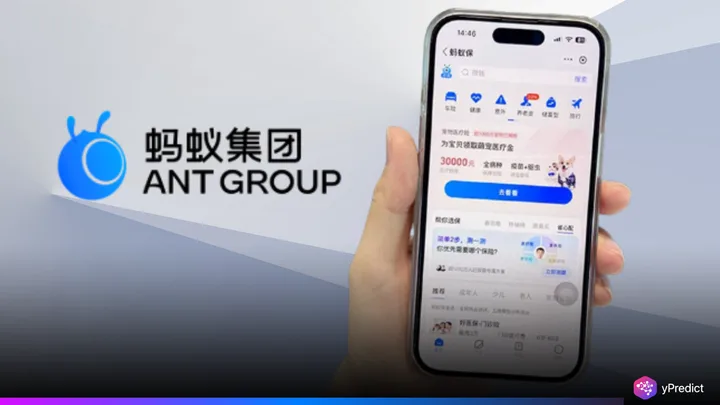
Ant Group has launched AQ, a new AI-powered healthcare app, aiming to make healthcare easier for millions across China. The app, announced today, offers over 100 intelligent services, from doctor recommendations to medical report analysis. AQ connects users with nearly one million doctors and 5,000 hospitals. The launch comes as China faces a rising healthcare demand, with more than 400 million people expected to be over 60 by 2035.
“We hope AQ becomes everyone’s trusted healthcare manager,” said Cyril Han, CEO of Ant Group. The company is expanding beyond payments, betting on digital health as its next frontier. With AQ, it wants to close healthcare gaps and support aging populations through AI. The app builds on Ant Group’s decade of healthcare experience via its Alipay platform, which first offered online hospital appointments in 2014. Now, AQ represents a major step in making healthcare more personal, accessible, and efficient across China.
AI Healthcare at Scale, What AQ Does and How It Works?
AQ is powered by Ant Group’s Healthcare Large Model, a custom AI system trained on medical data and interactions. The app helps users analyze test results, ask medical questions, and receive AI-generated health advice. It also guides patients to the right doctors or services nearby. The model uses multimodal inputs, text, images, and speech, and ranks first in national AI medical benchmarks. Ant Group says it’s built to keep user data safe, using advanced privacy and security tech.
Hospitals and clinics can also tap into the platform through local AI machines installed on-site. These allow medical staff to access the same AI tools without needing to connect to the cloud. “We want to offer inclusive healthcare tools to every citizen,” said Han. By blending AI reasoning with human care, Ant Group hopes AQ can bridge the gap between growing patient needs and limited healthcare staff.
Inside Hospitals: AI Assistants, Insurance Tools, and Doctor Support
AQ is already being deployed across hospitals, public institutions, and online platforms. In Zhejiang Province, the Angel AI assistant now supports over 1,000 hospitals, handling more than 50 million patient questions. The tool helps users navigate services, book appointments, and get real-time answers. Another AI agent, Yibaoer, was launched to simplify medical insurance inquiries across China. It helps users understand complex insurance terms and get claim support faster. In January, Ant Group also acquired Haodf, a well-known online doctor service.
Together, they launched an AI Doctor Assistant that helps physicians manage records and give better diagnoses. AQ is also working with 200 doctors to build AI Doctor Agents, virtual advisors that offer credible guidance to patients. These tools extend care to rural or underserved areas, where hospitals are scarce. However, challenges remain around trust and medical accuracy. Some experts warn against over-reliance on AI for sensitive decisions like prescriptions or treatments.
Ant’s Push Signals a Bigger Bet on Healthcare AI in China
Ant Group’s expansion into healthcare AI shows a larger shift among Chinese tech firms toward service-driven platforms. With AQ, Ant is not only responding to demographic changes but also positioning itself as a key player in digital health. The company’s decade-long work with hospitals and insurers gives it a head start. By integrating AI into patient care and backend systems, Ant hopes to increase efficiency without replacing doctors. Privacy, reliability, and local deployment remain central to its pitch.
As more hospitals adopt AI tools like AQ, the model could scale nationwide. The next phase will likely include deeper partnerships, improved AI accuracy, and more user-facing features. While risks like misinformation or misuse exist, Ant’s approach appears measured and clinically grounded. The real test will be how widely patients and doctors adopt these tools, and how much value they deliver in real-world care.






